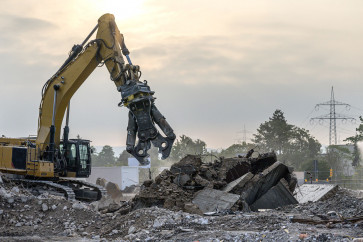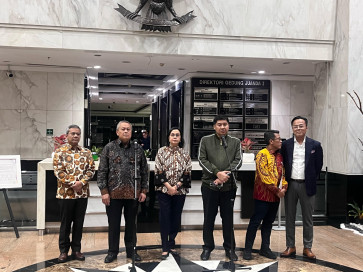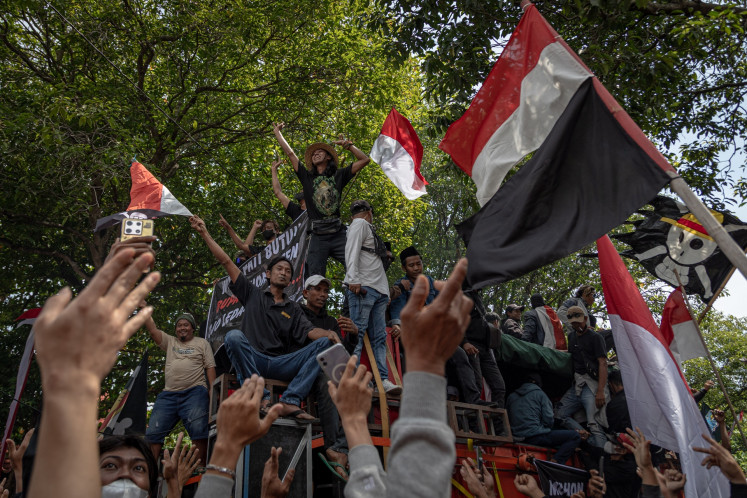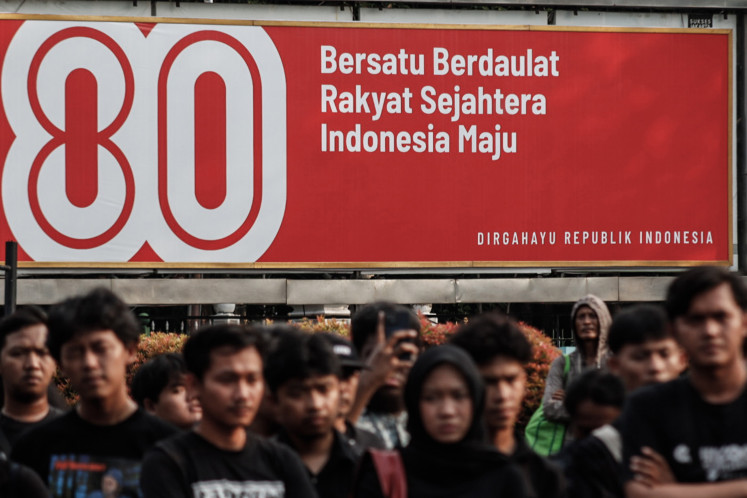Popular Reads
Top Results
Can't find what you're looking for?
View all search resultsPopular Reads
Top Results
Can't find what you're looking for?
View all search resultsNuclear project lacks support from govt
The National Nuclear Energy Agency (Batan) has encouraged the government to provide more funding and ease regulatory processes for the construction of the countryâs first nuclear power plant (PLTN)
Change text size
Gift Premium Articles
to Anyone
T
he National Nuclear Energy Agency (Batan) has encouraged the government to provide more funding and ease regulatory processes for the construction of the country's first nuclear power plant (PLTN).
Batan chairman Djarot Sulistio Wisnubroto told The Jakarta Post on Tuesday that by making a quick decision, Indonesia would not experience more losses in the project, as it has suffered in previous years.
'We will follow any decision from the government; for us there is nothing to lose,' Djarot said.
Government support remains vital as Batan is still striving to construct a new mini nuclear power plant in Serpong, West Java. The reactor can produce 10-15 megavolts (MV) of electricity.
The agency has completed the project's road map and is waiting for budget disbursement to run the project. It was previously reported that the government has agreed to finance the project using state funds.
Initially the project was estimated to cost Rp 1.7 trillion.
Djarot acknowledged that budget issues were a serious obstacle that had hampered Batan in realizing the project, as there had been no signs of disbursement from the government.
'Actually it is also possible to get soft loans from government-to-government [G2G] by working with countries that have advanced experience in nuclear technology. We will also benefit from technology transfer from them,' Djarot said.
He said that last year, Batan signed a memorandum of understanding with Rusatom Overseas, a subsidiary of Russian state corporation Rosatom that promotes the country's nuclear technology globally and develops its foreign projects.
On Monday, Research, Technology and Higher Education Minister Muhammad Nasir said the construction of the mini nuclear power plant in Serpong was on track, adding that the government was completing a detailed engineering design for the experimental power reactor.
'The project will start in 2018 or 2019,' Nasir said as quoted by local media in Semarang, Central Java.
He said the reactor will be for research and education purposes.
'If it was for commercial or business purposes, we would need to wait for an order from President Joko Widodo,' Nasir said.
He gave his assurances that the nuclear power plant would not have negative impacts on the environment or residents living nearby.
'Batan has long experience in managing nuclear reactors in Indonesia, and so far there have been no serious problems,' Nasir said.
Currently, Indonesia has three nuclear reactors for research and education purposes, located in Bandung, West Java; Yogyakarta; and Serpong. The government is also eyeing building two new reactors, in Bangka-Belitung and in Muria, Central Java.
Japan's Fukushima nuclear plant meltdown in 2011 sparked deep concerns about the safety of nuclear power worldwide, including in Indonesia.
The tragedy reinforced antinuclear activism in the country, particularly in areas earmarked for PLTN construction in Central Java.
Djarot said growth in nuclear reactors was quite strong, as currently there are 68 reactors under construction worldwide, adding to 430 existing reactors around the globe. Japan has opened three new reactors since the Fukushima calamity.










